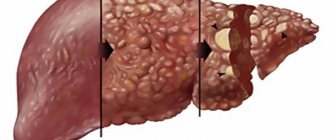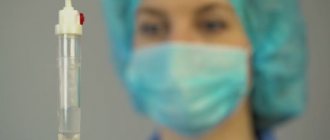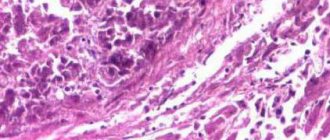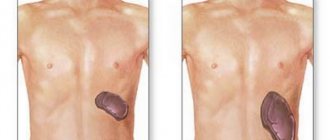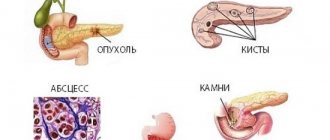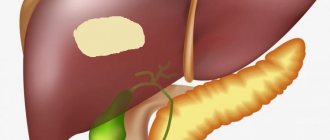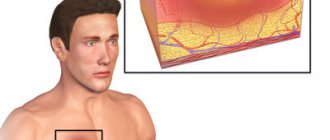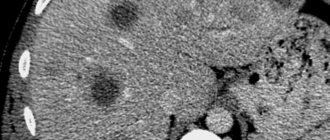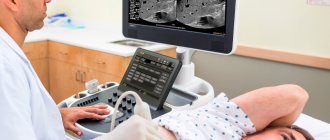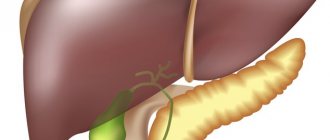Currently, doctors are increasingly diagnosing liver cirrhosis. The factors causing it are different, and the symptoms cannot be ignored. This disease is dangerous due to complications for the entire body, so it is very important to carry out treatment in a timely manner. Modern pharmacology offers a large number of different medications that can be used to successfully treat liver diseases. Among them there are also effective hepatoprotectors. All prescriptions, dosages and duration of therapy are determined only by the doctor, taking into account the severity of the disease, the severity of symptoms, test results and the general condition of the patient.
Treatment at different stages of cirrhosis
There are several types of cirrhosis:
- Alcoholic.
- Biliary (bile ducts are blocked here).
- Viral (triggered by viral hepatitis).
- Congestive (heart failure may be to blame).
- Idiopathic (reasons are difficult to find).
- Toxic (when the body is poisoned with poisons or drugs).
Read about why cirrhosis occurs and what symptoms the disease produces in this article.
Of course, the medications needed will be different in each case. Also, the selection of funds depends on the stage of cirrhosis. There are several of them too.
- So, during the inactive compensated stage, medications are not particularly needed. Typically, vitamins and a diet are prescribed here, plus abstinence from alcohol, smoking and most medications.
- In the active compensated stage, not only vitamin therapy with diet is needed, but also hepatoprotectors, for example, containing essential phospholipids or milk thistle extract. Phospholipids are taken 4 times a day (one tablet), milk thistle products are taken three times a day, a couple of tablets. The duration of therapy is from one to two months.
- In the decompensated stage, the dosage of hepatoprotectors is doubled and they are prescribed in the form of droppers. Lecithin or arginine plus hepatoprotectors of animal origin can also be prescribed. Treatment lasts at least three months.
- In case of viral cirrhosis (especially active or moderate activity), cotricosteroid hormones will be needed. Most often this is prednisolone, which is given 30 mg per day. Twice a month the dosage is reduced by two and a half milligrams. Maintenance therapy is up to 15 mg per day. Cirrhosis is treated in this way for up to three years.
- For cirrhosis with ascites, diuretics are also prescribed, and salt is excluded from the diet. Additionally, you need to take potassium preserving agents.
- In case of primary and biliary cirrhosis, treatment is impossible. Here, either a liver transplant is prescribed, or the course of the disease is slowed down with the help of steroids. To relieve symptoms, proteolysis inhibitors and artificial bile acids, as well as plasmaphoresis, are prescribed.
Synthetic bile acids
If the secretory function of liver hepatocytes is impaired, bile acids accumulate in them, which leads to cell destruction. Synthetic bile acids, obtained by humans during the treatment of liver cirrhosis with drugs, reduce the concentration of hydrophobic, cytotoxic substances in cellular structures and protect them from destruction. List of drugs with bile acid composition:
Dosage (number of capsules/how many times to take per day), application
Ursodeoxycholic acid (UDCA)
The dosage is calculated based on body weight: 15-20 mg of UDCA per 1 kg of weight. The required dose is divided into 2-3 doses. 1 capsule contains 250 mg of UDCA.
The course is from six months to 2 years, depending on the severity of cirrhosis.
Antral (tris[N(2,3-dimethylphenyl) anthranilato] aluminum)
2/3 – first week;
1/3 – second to fourth week.
Dose: 10 mg UDCA per 1 kg of weight. Take the medicine before bed. (1 capsule contains 250 mg UDCA). Course – 6-12 months.
10-20 mg UDCA per 1 kg of weight. Divide the reception into 3-4 doses. Course – from six months to 2 years. (1 capsule contains 250 mg UDCA).
https://youtu.be/c_uuhD0jFkc
Drugs: description and price
There are many remedies for liver cirrhosis - about six hundred names can be found in Russian pharmacies. They are usually chosen by a gastroenterologist or (if available) a hepatologist. Here are just the key tools to combat cirrhosis.
Price from 488 rubles. The drug is complex, belongs to hepatoprotectors, has the following properties: antifibrotic, antioxidant, membrane stabilizing, anti-inflammatory, anitoxidant.
The product is quite effective and safe, but can cause allergies. Has a complex effect. The active ingredients are glycyrrhizic acid and phospholipids.
- Essentiale forte
Price from 630 rub. Quite a popular hepatoprotector in capsules. Usually used in combination with other drugs. Has very few side effects. The active ingredients are phospholipids.
Essliver forte. Price from 380 rub. Gives hepatocytes protection and prevents their transformation into fibrous tissue. Most effective for cirrhosis caused by hepatitis. Gives the body all the vitamins necessary for liver function. Among the working components are essential phospholipids and vitamins in large quantities.
Average price - 400 rub. The product is complex, combines the work of phospholipids and milk thistle. Protects hepatocytes and prevents their transformation into connective tissue, while improving organ function. Effective for cirrhosis caused by hepatitis and toxic cirrhosis.
Another product with phospholipids. Price from 550 rub. The action is similar to Essential, but the price is lower and has antioxidant properties. Active ingredients: phospholipids and vitamin E.
Cost from 1600 rub. Effective for alcoholic or toxic cirrhosis. An improvement in the condition is observed within a week. Most often used as injections. Has a strong antioxidant effect. The active ingredient is ademetionine.
Price from 850 to 3,000 rub. Used for both treatment and detox. Prescribed exclusively by a gastroenterologist or hepatologist. A fairly effective remedy, but rich in side effects. The active ingredient is ornithine.
Price from 160 rub. It has an immunomodulatory effect on the liver, lowers cholesterol, and stimulates the production of bile. Effective for primary biliary cirrhosis, cirrhosis caused by hepatitis, toxic and alcoholic cirrhosis. The active ingredient is ursodeoxycholic acid.
Price from 360 rub. Hepatoprotector of animal origin. It not only protects hepatocytes, but also has a positive effect on the synthesis of amino acids in them, and also cleanses. The active ingredient is freeze-dried pig hepatocytes.
Price - from 800 rub. Also an animal hepatoprotector. Stops fatty infiltration of the organ, cleanses it. It is administered intramuscularly. The active ingredient is cow liver hydrolysates.
Price from 150 rub. It is a detoxifier and removes ammonia. It also protects hepatocytes and saves them from hypoxia. It has antioxidant properties and stabilizes membranes. The main character of the product is arginine glutamate.
Price from 1000 rubles. Removes dangerous ammonia, relieves inflammation, cleanses and protects against hypoxia, has antioxidant properties. The active ingredients are betaine and arginine.
Price from 350 rub. One of the most popular herbal preparations. Protects hepatocytes from destruction by fighting toxins. The active ingredient is spotted milk thistle extract.
Price from 350 rub. Protects hepatocytes, stimulates bile production. Effective for cirrhosis caused by hepatitis. Not prescribed for acute hepatitis. The active ingredient is artichoke extract.
Price from 450 rub. Hepatoprotector, which simultaneously relieves pain and has choleretic properties. The active ingredients are the same milk thistle plus fume.
Price from 110 rubles. A herbal remedy that stabilizes hepatocyte membranes, protects them, as well as an anitoxidant and choleretic agent. The active ingredients are extracts of milk thistle, as well as other plants (birch leaves, tansy flowers, St. John's wort).
Price up to 260 rub. Herbal complex hepatoprotector, relieves inflammation and pain. Prevents the development of gallstones. The active ingredients are the same milk thistle, plus sodium sulfate and plant extracts.
It is important to know! Many remedies for cirrhosis are dietary supplements, not medicines. They have a less pronounced effect, but should also be prescribed by a hepatologist.
Cirrhosis also requires vitamins. This is especially true for vitamins from group B, the inseparable pair E and A, lipolyic acid and craboxylase. No less popular are folic acid and rutin. Diuretics are also actively used. The most popular are loop diuretics, potassium-sparing diuretics and thiazides. Allohol and karsil analogues are also prescribed.
Lipotropic substances
A group of drugs that contain amino acids that can normalize the metabolism of carbohydrates and fats, reduce the level of low-density lipoproteins in the blood, and prevent liver infiltration are combined into lipotropic drugs. Characteristics of some of them:
- Heptral. In addition to hepatoprotective properties, it has detoxification, neuroprotective qualities, and normalizes blood composition.
- Hepa-merz. Helps lower blood ammonia during drug treatment of liver cirrhosis. Activates insulin production, improves protein metabolism.
- Betargin. Removes toxic nitrogen from the organ. Shows antioxidant, anti-inflammatory and antihypoxic properties. Reduces the incidence of dyspeptic disorders.
Drugs for the treatment of cirrhosis with ascites
One of the most complex forms of this disease, in which fluid accumulates in the abdominal cavity. However, it can also be treated. The most important thing here is to constantly monitor diuresis. Most often, the drug Spironolactone is prescribed for this disease. It is combined with Furosemide, Triampur and Ethacrynic acid. Carbonic anhydrase inhibitors may be prescribed slightly less frequently. You cannot prescribe diuretics for this type of cirrhosis on your own - let a hepatologist or gastroenterologist do this. Diet is also important here.
You can read about ascites in this article, where you will learn more about what it is and why it occurs.
Unfortunately, there is no ideal drug that will cure cirrhosis, because each case of this disease is individual. In addition, it cannot be cured completely. At the same time, it is quite possible to make life with liver cirrhosis complete. Treatment of cirrhosis is the right means chosen by a specialist, plus diet and a healthy lifestyle.
Cirrhosis is a serious liver disease, which is expressed in the gradual replacement of its functional cells, hepatocytes, by fibrous (connective) tissue cells. As the number of hepatocytes decreases, it becomes increasingly difficult for the liver to cope with its main responsibilities - carbohydrate-lipid metabolism and cleansing the body of toxins. Therefore, a person with cirrhosis acquires a jaundiced complexion and large-scale disruptions in the functioning of the entire digestive system.
With cirrhosis of the liver, the size, shape, density and internal structure of the organ changes. Fibrous fibers penetrate and compress the liver, and surviving hepatocytes multiply vigorously, trying to compensate for the deficiency. As a result, the liver becomes small, hard and lumpy, but this is not the worst thing. The chaotic growth of hepatocytes often leads to mutation of their cellular structure, and then they turn into cancer cells.
There are several types of liver cirrhosis, depending on the causes of the disease:
Viral cirrhosis is a complication of viral hepatitis;
Congestive cirrhosis is caused by venous congestion in the liver due to chronic heart failure;
Biliary cirrhosis is associated with blockage of the bile ducts;
Alcoholic cirrhosis is the result of long-term alcohol abuse;
Toxic cirrhosis develops under the influence of drugs or poisons that destroy the liver;
Idiopathic cirrhosis is so called because it has no explainable cause.
Diuretics
Diuretics (diuretics) are one of the main components of conservative therapy for cirrhosis. They accelerate the elimination of toxins in the urine, relieve swelling of the extremities, and reduce the severity of ascites (abdominal dropsy). To eliminate symptoms, thiazide, loop, and potassium-sparing diuretics are used.
Medicines for liver cirrhosis:
- Hypothiazide – has a hypotensive effect, reduces the severity of portal hypertension (syndrome of increased pressure in the portal vein);
- Diuver - reduces ascitic effusions into the internal spaces with abdominal dropsy;
- Furosemide – eliminates swelling of the limbs, puffiness of the face;
- Spirix – removes toxins from the body, eliminates swelling of the arms and legs in case of decompensated cirrhosis;
- Veroshpiron - reduces the severity of ascites and nephrotic syndrome, lowers blood pressure in essential hypertension.
Timely intake of diuretics prevents increased blood pressure and impaired blood flow in the spleen and kidneys.
Drug treatment of liver cirrhosis
The tactics of conservative treatment of cirrhosis depend on the type and stage of the disease:
The inactive compensated stage of liver cirrhosis does not require the prescription of any medications other than vitamin complexes. The patient is advised to diet and follow a healthy lifestyle so that the development of the disease stops completely;
The active compensated stage of liver cirrhosis is treated not only with vitamin therapy, but also with hepatoprotectors - essential phospholipids and herbal preparations based on milk thistle fruit extract. Lipoic acid is usually prescribed, 1 tablet 4 times a day, Carsil or its analogue, 2 tablets 3 times a day, and Essentiale, 2 capsules 3 times a day for 1-2 months;
The decompensated stage of liver cirrhosis requires an increase in the dosage of the above-mentioned hepatoprotectors by 2-3 times and their transfer from an oral form to an injection form to ensure the best absorption. Additionally, lipotrophic substances (arginine, ornithine, lecithin and others) are prescribed, as well as, if required, hepatoprotectors of animal origin. The course of treatment takes at least three months;
Moderate to high-grade viral cirrhosis of the liver is treated with corticosteroid hormones. As a rule, prednisolone is prescribed (30 mg/day), and then the dosage is reduced by 2.5 mg every two weeks until the maintenance level (7.5-15 mg) is reached. The course of treatment lasts 2-3 years;
Liver cirrhosis with ascites requires avoidance of salt and daily monitoring of diuresis - it should be below 500 ml/day. Otherwise, the patient is prescribed diuretics and potassium-sparing drugs at a dosage of 150-200 mg/day, followed by transition to maintenance therapy (100 mg/day). Treatment of cirrhosis with ascites involves constant use of diuretics for several years;
Primary biliary cirrhosis is incurable. Steroid hormones slightly slow down the course of the disease. Synthetic bile acids and proteolysis inhibitors have a symptomatic alleviating effect. Vitamins, lipotropics and plasmaphoresis sessions will also help support the body. A liver transplant is indicated.
Complications
A dangerous complication is the addition of a bacterial infection. If such a complication of the disease occurs, antibiotics may be prescribed. To prevent the occurrence of dangerous conditions and to get rid of existing complications, the following antibiotics can be used:
Ciprofloxacin . This drug is very often used when a complication such as ascites occurs. For the treatment of complications, almost maximum dosages are used by injection.
Cefotaxime. Another broad-spectrum antibiotic that is used when life-threatening complications occur. It has high antimicrobial activity. Dosages are selected by the doctor.
It is worth noting that complications of cirrhosis can only be relieved in a hospital setting. They threaten life and require immediate response from specialists.
Hepatoprotectors
Hepatoprotectors are drugs that have a protective effect on liver cells. This family includes a huge number of drugs, the effectiveness of most of which has not been confirmed by clinical trials. The very concept of “hepatoprotector” is very conditional, and in different countries there are different ideas about which drugs are included in this group.
There is no official registry of hepatoprotectors recognized by the international medical community. About 700 hepatoprotectors are registered in the Russian pharmacopoeia, belonging to 16 subgroups, depending on the main active ingredient. However, not all of them are relevant when it comes to serious degenerative liver diseases.
The following types of hepatoprotectors are used to treat cirrhosis:
From our article you will learn absolutely everything about hepatoprotectors and other drugs for the treatment of liver cirrhosis: names and prices, composition and pharmacological action, indications and contraindications, methods of use and side effects.
Video
https://youtu.be/6iwA4UYFI2s
The information presented in the article is for informational purposes only. The materials in the article do not encourage self-treatment. Only a qualified doctor can make a diagnosis and make recommendations for treatment based on the individual characteristics of a particular patient.
Source: sovets.net
We are in social networks:
More information:
- treatment of cirrhosis at home lNDq9RCid8X3B9CEA3R6MBpbO4vHfIdsmJJetenx4duA4Z5zZOuCiKGWI8uQBA1ObJTvP2UOeffb5dCXUXq8zZR2R […]
- treat liver cirrhosis lNDq9RCid8X3B9CEA3R6MBpbO4vHfIdsmJJetenx4duA4Z5zZOuCiKGWI8uQBA1ObJTvP2UOeffb5dCXUXq8zZR2R […]
- liver cirrhosis to be treated lNDq9RCid8X3B9CEA3R6MBpbO4vHfIdsmJJetenx4duA4Z5zZOuCiKGWI8uQBA1ObJTvP2UOeffb5dCXUXq8zZR2R […]
- treatment of liver cirrhosis in men with folk remedies
- treatment of liver cirrhosis lNDq9RCid8X3B9CEA3R6MBpbO4vHfIdsmJJetenx4duA4Z5zZOuCiKGWI8uQBA1ObJTvP2UOeffb5dCXUXq8zZR2R […]
- liver cirrhosis, what is it, how to treat lNDq9RCid8X3B9CEA3R6MBpbO4vHfIdsmJJetenx4duA4Z5zZOuCiKGWI8uQBA1ObJTvP2UOeffb5dCXUXq8zZR2R […]
- therapy for liver cirrhosis lNDq9RCid8X3B9CEA3R6MBpbO4vHfIdsmJJetenx4duA4Z5zZOuCiKGWI8uQBA1ObJTvP2UOeffb5dCXUXq8zZR2R […]
- how to get rid of liver cirrhosis lNDq9RCid8X3B9CEA3R6MBpbO4vHfIdsmJJetenx4duA4Z5zZOuCiKGWI8uQBA1ObJTvP2UOeffb5dCXUXq8zZR2R […]
- liver cirrhosis therapy lNDq9RCid8X3B9CEA3R6MBpbO4vHfIdsmJJetenx4duA4Z5zZOuCiKGWI8uQBA1ObJTvP2UOeffb5dCXUXq8zZR2R […]
- what to do about liver cirrhosis lNDq9RCid8X3B9CEA3R6MBpbO4vHfIdsmJJetenx4duA4Z5zZOuCiKGWI8uQBA1ObJTvP2UOeffb5dCXUXq8zZR2R […]
Medicines for liver cirrhosis
Below are all types of drugs that have a therapeutic and restorative effect on liver damage. During therapy, it is necessary to identify a drug for cirrhosis that is suitable in this particular case.
Hepatoprotectors
Medicines that prevent cell destruction in liver cirrhosis are called hepatoprotectors. Many drugs have found wide use in Russian pharmaceuticals. Over 600 names of this type of drugs have been identified. There are 16 groups. From this variety of medicines, the best medicine must be determined.
Essential phospholipids
Phospholipids are essential compounds of fatty acids and phosphoric acid atoms that are directly involved in the metabolic processes of the human body. Essential phospholipids act by inhibiting collagen, which converts hepatocytes into fibrous tissue. Thus, phospholipids can slow down the development of liver pathology, provided that a healthy lifestyle is maintained.
- Essentiale Forte. 2 capsules x 3 times daily with meals
- Essliver forte. Likewise
- Phosphogliv. 1-2 capsules x 2-3 times daily with meals
- Phosphonziale. 2 capsules x 2-3 times daily with meals
Side effects when using phospholipids are very rare. These include itching, gastrointestinal disorders, and allergic reactions. The price for hepatoprotectors of this group reaches 1,400 rubles.
Diuretics
Diuretics are prescribed to prevent ascites both in the early stages of liver destruction and during the active course of the disease. Abdominal hydrops or edema occurs when there is an excess of the hormone aldosterone, caused by a lack of total circulating blood volume.
To prevent ascites, take diuretics at the first appearance of edema, control diet and diuresis. Self-medication is strictly prohibited; consultation with a gastroenterologist is provided. Diuretics for liver cirrhosis: Aldactone (potassium-sparing medicine), Hypothiazide (thiazide diuretic), Diuver, etc. They filter the liver by absorbing harmful bacteria and microorganisms and excrete them through the urine.
Herbal preparations
Treatment of liver cirrhosis based on herbal remedies consists of the action of flavonoids, which form a wall around hepatocyte cells. In particular, such a “protector” is silymarin, which is present in abundance in the fruits of milk thistle.
An analogue of silymarin is cynarin, found in the seeds of the perennial cultivated plant artichoke. This bioflavonoid is rich in antioxidant properties and removes toxins and salts from the body. Taking many other extracts based on natural ingredients also has a positive effect on liver restoration.
Herbal preparations for the treatment of liver cirrhosis:
- Carsil (silymarin, interacting with toxins, displaces them and protects them from adverse effects);
- Cynarix (cynarin gets to work: reduces thrombosis, stimulates the functioning of the intestines and gallbladder);
- Allochol (inexpensive medicine based on activated carbon, nettle and garlic; activates the intestines, cleanses the digestive tract);
- Bonjigar (regulates the content of bilirubin in the blood);
- Galstena (choleretic antispasmodic effect).
These medications are contraindicated for persons who have individual intolerance to the components.
Hepatoprotectors of animal origin
Drug treatment with pork and cow sublimates is not so developed. Firstly, the effect of drugs based on animal by-products has not been proven in clinical trials; secondly, there is a risk of causing allergic reactions. It is recommended to take as directed by your doctor. They function by compensating for dead hepatocytes in humans with identical cells from pigs and cattle. Common medications in this subgroup:
- Hepatosan (stimulation of blood circulation and regulation of amino acid metabolism);
- Sirepar (indicated for fatty degeneration, hepatitis, alcohol disorders);
- Progepar (restoration of damaged cells, normalization of the gallbladder and bladder).
Synthetic bile acids
Chenodeoxycholic and ursodeoxycholic acids are formed synthetically. In the international register they are assigned code A05A. If the first pharmacological product is aimed at treating the gallbladder and biliary tract, then the medicinal properties of the second are very useful for combating cirrhosis, namely: reducing the concentration of cholesterol in bile, producing bile juice, and breaking down fats. A popular remedy based on ursodeoxycholic acid is ursosan.
Lipotropic substances
Lipotropic substances include compounds that inhibit or prevent fatty hepatosis. It is formed due to saturation of the organ with lipids, impaired protein metabolism, and pancreatic dysfunction. Lipotropics are amino acids (lecithin and arginine, choline and ademitionine, cyanocobalamin and folic acid) that act on the basis of lipoprotein metabolism. The proportion of lipids in the mass of a healthy liver gland is 7-14%, and with fatty infiltration – 45%. Therefore, the synthesis of lipotropic enzymes plays a critical role in the elimination of triglycerides.
Medical drugs based on amino acids:
- Heptral (a.v. – ademetionine; regeneration, tissue antifibrosis, antidepressant effect);
- Glutargin-alcocline (active ingredient – arginine; neutralization and disposal of dangerous toxic poisons);
- Hepa-merz (a.v. - ornithine; production of insulin hubbub, increased protein synthesis);
- Betargin (active ingredients – arginine and betaine; destruction of nitrogenous deposits, reduction of dyspepsia).
Antibiotics
Liver cirrhosis should be treated with antibacterial agents in case of dangerous complications. The drugs are prescribed for ascites-peritonitis, pneumonia, pleurisy, hepatic encephalopathy. Untimely destruction of the infection in the body is fraught with an abscess, purulent complications, and death of the patient.
Patients receive many necessary medications for liver cirrhosis free of charge.
Usually prescribed:
- Penodil - eliminates infectious and inflammatory reactions in the lungs, prescribed for pleurisy and pneumonia;
- Cliacyl - inhibits the synthesis of bacterial cells, destroying infection in soft tissues and respiratory tracts;
- Ospamox - kills the bacterial flora in the peritoneum during inflammation of the ascitic fluid;
- Picillin – eliminates microbial infection in the lungs (pneumonia), kidneys (pyelonephritis), peritoneum (ascites);
- Cloxacillin - destroys staphylococcal infection, relieves generalized bacterial inflammation.
For complicated cirrhosis, low-toxic penicillin antibiotics are used. They do not create excessive stress on the liver and do not cause drug poisoning.
Vitamins for cirrhosis
Vitamins are a source of nutrients for the body, including for the prevention of cirrhosis. The most valuable vitamins for liver failure are vitamins A (retinol) and provitamin A (carotene), C (ascorbic acid), E (tocopherol), and B vitamins.
Vitamin A has a beneficial effect on the development of bone tissue, improves the composition and structure of the skin, develops twilight vision, and is useful for pregnant women. It directly benefits the liver in the form of accumulation of glycogen, which protects the gland from accumulating fat.
The beneficial properties of vitamin C lead to strengthening the body's immunity. Ascorbic acid plays an important role in oral care, prevents the occurrence of infectious diseases, rejuvenates the body, and helps the recovery of patients suffering from alcoholism and drug addiction. The vitamin is found in large quantities in citrus fruits, cabbage, potatoes, berries, tomatoes and onions. Ascorbic acid is sold in tablet form in every pharmacy.
Vitamin E supplies the body with oxygen, has a positive effect on sexual function in men (improving sperm quality, increasing potency) and women (destruction of malignant breast tumors, facilitates menstrual and menopausal periods), and prevents the formation of blood clots.
During examination at the clinic and based on test results, the necessary vitamins are identified and prescribed. Liver cirrhosis involves the use of drugs Berlition, Pyridoxal phosphate, etc.
What can be taken additionally
For successful therapy, vitamin complexes and other beneficial substances can be taken. Many of them are not medicinal, but they make a significant contribution to getting rid of liver damage. The following can be used as additional means:
Glycyrrhizic acid. This drug is medicinal and natural. It has antiviral and anti-inflammatory effects. In addition, Glycyrrhizic acid relieves swelling and eliminates high blood pressure. Glycyrrhizic acid has contraindications, so you need to undergo a full examination before using it.
Vitamin complex. Vitamins must be present. During the course of any acute or chronic lesion, immunity decreases and the need for essential elements arises. Vitamins are especially important: A, B, C and E. They help the liver work better and also recover faster. They also affect the general condition of the body.
The use of additional funds is necessary for final recovery. Beneficial elements and natural medicines begin to be used from the very beginning of the entire therapy. Their use can be continued after achieving certain results.
Often, changes in liver tissue are chronic, so you will need to regularly use various vitamin complexes. All medications and additional medications are taken in courses so as not to cause harm to the body.
Folk remedies and medicines
American biologist Norman Walker has developed dozens of types of vegetable drinks to combat cirrhosis. They are based on mixing natural vegetable juices (a mixture of carrots and onion-spinach; a cocktail of cucumber, carrots and beets; adding black radish to carrot juice).
Turmeric is a proven folk remedy that relieves the inflammatory process in hepatocidal cells. A folk recipe based on turmeric: dilute 1 teaspoon of turmeric powder in a glass of boiled water and add honey to taste. Take the product twice a day before meals.
At the initial stage of cirrhosis, an infusion of elecampane will provide indispensable help. It is recommended to use 3 times over 10 days. Dandelion is well recommended for its beneficial antioxidant properties (the juice is taken on an empty stomach 2-3 times a day). A composition of crushed garlic mixed with kefir will also be useful for restoring the functions of the liver gland.
